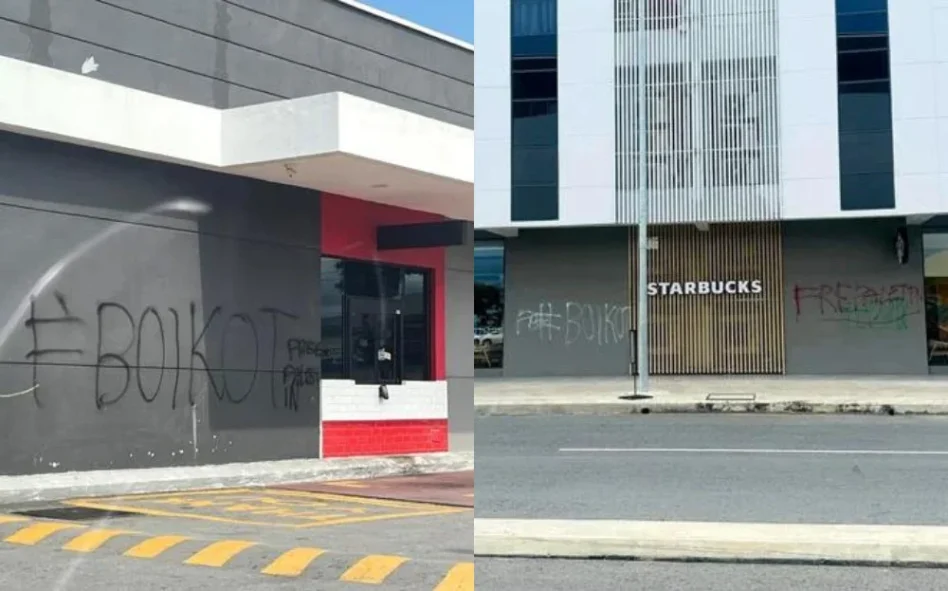 By P Gunasegaram
By P Gunasegaram
THE first trial hearing in a case involving 1Malaysia Development Bhd (1MDB) post the entry of the backdoor government started with a big bang – Datuk Seri Najib Razak’s stepson Riza Shahriz Abdul Aziz has been offered a surprise deal by prosecutor Datuk Seri Gopal Sri Ram yesterday – a conditional discharge in return for certain recoveries of monies.
Understandably, the decision has caused quite a stir, raising questions, rightly or wrongly, over whether the change of government, where Bersatu is aligned with Umno and PAS, has already caused a softened approach in the charging of those involved in the 1MDB scandal.
Was it a fair deal for the government, or was the prosecution being too lenient here? And to make the deal more questionable, former attorney-general Tan Sri Tommy Thomas denied agreeing to the deal, contradicting the Malaysian Anti-Corruption Commission (MACC). Let’s see how everything stacks up as of now.
Hollywood producer Riza of The Wolf of Wall Street fame, son of Rosmah Mansor and a friend of Jho Low, was given a discharge but not amounting to an acquittal, on money-laundering charges involving US$248 mil (RM1.1 bil), allegedly misappropriated from 1Malaysia Development Bhd (1MDB) funds, Bernama reported.
Former Federal Court judge Sri Ram, who was appointed as senior DPP in the case, informed the court that since the filing of the charges, the accused had made several representations through his solicitors to the relevant authorities.
“An agreement has been arrived at between the prosecution and the accused under the terms of which the federal government will receive a substantial sum running into several million ringgit,” he added.
Riza was facing five charges of money laundering under Section 4(1)(a) of the Anti-Money Laundering and Anti-Terrorism Financing Act 2001. It reads: Any person who engages, directly or indirectly, in a transaction that involves proceeds of an unlawful activity or instrumentalities of an offence, commits a money laundering offence and shall on conviction be liable to imprisonment for a term not exceeding fifteen years and shall also be liable to a fine of not less than five times the sum or value of the proceeds of an unlawful activity or instrumentalities of an offence at the time the offence was committed or five million ringgit, whichever is the higher.”
That implies on all five charges Riza faced prison terms of 75 years (15 years on each charge) and fines of RM5.5 bil (RM1.1 bil laundered in total multiplied by 5)!
At that stage, Sri Ram did not reveal the full terms of the settlement beyond saying that it involved “several million ringgit”.
If it was just a question of several million ringgit, it looks grossly inadequate considering that the fines alone can amount to RM5.5 bil.
However, a statement by the MACC later in the day said it had been informed that it is a conditional release where the prosecution reserves the right to reinstate the charges and prosecute the accused if there is no satisfactory completion of the agreement.
“As a result, the Malaysian government is expected to recover overseas assets involved in the offence, which is estimated at US$107.3 mil (RM467 mil),” said the MACC.
But even this figure still pales in comparison with fines of a maximum of RM5.5 bil which can be potentially levied on Riza, nearly 12 times the settlement!
The US Department of Justice (DOJ) in its reports of 2015/16 alleged that some US$4.5 bil (RM19.6 bil at current exchange rates) had been stolen from 1MDB. It said that Riza received US$248 mil from Jho Low, from money stolen from 1MDB.
It clearly appears that Riza is being charged with laundering much of this money but has not so far been charged with stealing the money but only laundering it. Part of this money would have been recovered by the DOJ and returned to Malaysia, but how much this amounts to has not been disclosed.
The figures as they stand indicate that Riza is only returning US$107.3 mil out of the US$248 mil he laundered and thus there is US$140.7 mil or RM612 mil still unaccounted for.
What is interesting, and confusing at the same time, is that the MACC said “the agreement between the prosecution and the accused through a representation in court was considered and agreed by former attorney-general Tan Sri Tommy Thomas.”
Thomas, however, flatly denied this. “I resigned two and a half months ago and up to that point, there was no agreement to drop charges against Riza. So, it is wholly untrue and a fabrication to say that I had agreed to the decision.
“I am terribly disappointed that the MACC had to make this false statement,” he reportedly said.
The Edge in a report dated April 2 said that the Attorney-General’s Chambers has yet to answer a representation by Riza to review his money-laundering charges involving US$248 mil allegedly misappropriated from 1MDB funds. This was disclosed by his lawyer, Datuk Hariharan Tara Singh, when asked on the outcome of the representation.
That lends credence to Thomas’ assertion that he had not agreed to the settlement as he had resigned more than a month earlier on Feb 28.
On the surface, it looks like a bad deal – and a highly questionable one – for Malaysia and a pretty good deal for Riza who was facing fines of up to RM5.5 bil and a total jail term of up to 75 years. He got US$248 mil from Jho Low, returns US$107 mil, gets to keep as much as US$140 mil, and still gets an acquittal.
If the public is to believe that this is not a sweetheart deal for Riza and a softening of prosecutorial stance on 1MDB offenders, then it is incumbent on the MACC, Sri Ram and current Attorney-General Tan Sri Idrus Harun to show how this deal is beneficial for the country as a whole. You can get whatever Riza has offered and more – much, much more through fines and still put him in prison for a very long time.
Three questions are left hanging in the air. Is this the tone that will be taken for ongoing and future prosecutions involving 1MDB post the change of government in Malaysia? Isn’t this a dangerous precedent in the prosecution of serious crimes involving billions of ringgit, especially those involving 1MDB? What is the basis for making such decisions? – May 15, 2020
P Gunasegaram is editor of Focus Malaysia. He is the author of the first book on the biggest kleptocracy the world has ever known – 1MDB:The Scandal that Brought Down a Government.










